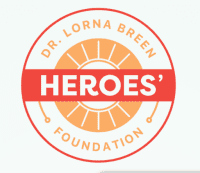When I compare my sister’s accounting job to my role as a nurse, it’s clear that a significant disparity exists in the social and professional benefits offered. As an accountant, she enjoys after-work parties, team-building events, traveling retreats, and flexible work hours. In contrast, nursing frequently feels like an endless cycle of shifts, with little room for camaraderie or relaxation outside of work. This raises an important question: Why can’t nursing jobs incorporate some of the perks and flexibility seen in other professions?
A need for social engagement
One of the key differences is the lack of social engagement opportunities in nursing. Accountants, like my sister, regularly attend after-work gatherings, fostering a sense of community and work-life harmony. These events aren’t just about fun; they build team cohesion and morale, making the workplace more enjoyable and supportive. Nurses, however, frequently miss out on such activities due to the demanding nature of our shifts and the critical responsibility of patient care that doesn’t pause for social events. Even celebrations held at the workplace typically are poorly attended due to the inability to leave the bedside.
Shift work and work-life balance
Nursing is synonymous with shift work, which is essential for providing round-the-clock patient care. However, this schedule can be isolating and exhausting. Unlike a typical 9-to-5 job, nursing shifts can disrupt personal lives and make it challenging to participate in social events or maintain a regular routine. This rigid structure leaves little room for the kind of after-work socializing that other professions take for granted. The lack of flexibility also impacts family life, making it hard for nurses to attend significant family events or even maintain regular family dinners.
Job stress and burnout
The high-stress environment of nursing, compounded by the emotional and physical demands of patient care, can lead to burnout. Although jobs in other fields have stress, the life-and-death stakes in nursing make it uniquely intense. Yet, the support mechanisms—such as regular breaks, mental health days, and social support systems—aren’t as robust as in other professions. These elements are crucial for preventing burnout and ensuring the well-being of healthcare professionals. For instance, mental health support in nursing frequently lacks the consistency and depth seen in other high-stress professions, leaving nurses to cope with the emotional toll on their own.
The importance of recognition
Recognition plays a vital role in job satisfaction and employee retention. In many professions, achievements are celebrated through awards, public acknowledgments, or even informal social gatherings. In nursing, recognition frequently comes in the form of a simple “thank you” or an annual award, which might not fully convey appreciation for the hard work and sacrifices made. How many more pizza parties do we have to go through? Creating more frequent and meaningful opportunities for recognition could help bridge this gap. Proper recognition not only boosts morale but also reinforces the value of nurses’ contributions to healthcare.
Bridging the gap
To make nursing jobs more like other jobs, healthcare organizations can consider implementing several strategies:
- Flexible scheduling: Allow for more flexible shift patterns where possible, enabling nurses to balance work with personal commitments and social activities. This could include options for part-time work, job sharing, or even more predictable shift rotations. Flexible scheduling can help reduce burnout by allowing nurses to better plan their lives around their work.
- Regular social events: Organize regular team-building events and after-work gatherings to foster a sense of community and support among nursing staff. These could range from casual get-togethers to structured team-building retreats designed to build relationships and improve teamwork. Social events also can provide a much-needed break from the high-stress environment, giving nurses a chance to unwind and connect with colleagues on a personal level.
- Support systems: Develop robust mental health support systems that nurses want, including regular counseling sessions, mental health days, and greater emphasis on reducing burdensome tasks in the workflow. Implementing peer support programs where nurses can share their experiences and offer mutual support also can prove beneficial. Mental health days, where nurses can take time off without stigma, are essential for maintaining long-term health and job satisfaction.
- Recognition programs: Implement frequent and meaningful recognition programs that celebrate nurses’ achievements and contributions in both formal and informal settings. These could include monthly awards, public acknowledgments, and small tokens of appreciation that go beyond the typical annual awards. Acknowledging the hard work of nurses regularly can make them feel valued and motivated.
Sustainable and fulfilling
By addressing these areas, we can make nursing not only a more sustainable career but also a more fulfilling one. Nurses, like professionals in other fields, deserve opportunities for social engagement, recognition, and a balanced life. It’s time we re-imagine the structure of nursing jobs to reflect the importance of these aspects. Implementing these changes would not only improve job satisfaction among nurses but also enhance the quality of patient care, as happier and more balanced nurses are better equipped to provide excellent care. Healthcare organizations must prioritize these changes to ensure the well-being and retention of their nursing staff, ultimately benefiting the entire healthcare system.
 Joseph R. Travis, MSN, CRNP, FNP-C is a Nursing Professional Development Specialist at the University of Alabama at Birmingham. He is the co-host of WellNURSE, a podcast dedicated to wellness in nursing, and serves as an Ambassador for the Dr. Lorna Breen Heroes Foundation. Joey has a background in medical-surgical nursing and is passionate about supporting the growth and well-being of nurses, emphasizing purposeful and impactful practice.
Joseph R. Travis, MSN, CRNP, FNP-C is a Nursing Professional Development Specialist at the University of Alabama at Birmingham. He is the co-host of WellNURSE, a podcast dedicated to wellness in nursing, and serves as an Ambassador for the Dr. Lorna Breen Heroes Foundation. Joey has a background in medical-surgical nursing and is passionate about supporting the growth and well-being of nurses, emphasizing purposeful and impactful practice.


















